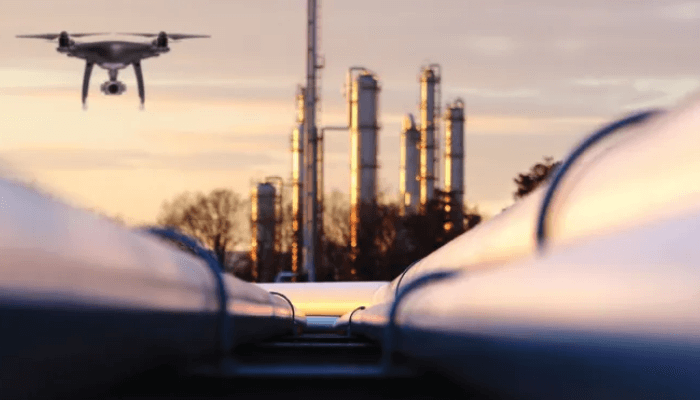AI, drones, data integration will define next phase oil and gas efficiency — Tech experts
Artificial intelligence (AI), drone surveillance and advanced data integration are poised to drive the next wave of operational efficiency in Nigeria’s oil and gas sector, industry technocrats say.
They make the case ahead of a three-day CPAAT Consulting retreat for chief information officers, chief technology officers, regulators and innovators, themed “Transforming the Oil and Gas Sector with Smart Technology”, where delegates will map a coordinated digital future for the industry.
Folarin Banigbe, chief executive officer of CPAAT Consulting, at a media briefing ahead of the CPAAT CIO Retreat 2025, on Monday, in Lagos, said the retreat is a convergence of some of the brightest minds driving Nigeria’s digital transformation, a space where conversations move beyond theory into action, collaboration, and tangible results.
Read also: Cloud accounting and artificial intelligence: Redefining financial reporting
Banigbe noted that the energy sector’s resilience depends heavily on how well it integrates artificial intelligence, automation, and predictive analytics into day-to-day operations. He said AI has the potential to transform nearly every part of the oil and gas value chain, from reservoir modeling and predictive maintenance to supply chain optimization and safety management.
“AI can analyze data in four and even five dimensions, helping engineers predict equipment failures, optimize drilling, and reduce waste. Sensors on pipelines can now detect minute drops in pressure, allowing operators to respond quickly before small issues become costly disasters,” he explained.
Banigbe added that such smart technologies would not only enhance profitability but also boost sustainability across the energy value chain. While Nigeria’s oil and gas industry has a long history of collaboration at the production level, through shared pipelines and joint ventures, CPAAT CEO said it is time to extend that cooperation to the technology layer.
“The sector must begin sharing digital infrastructure, best practices, and data insights to drive down costs and improve efficiency. Challenges such as oil theft, pipeline vandalism, and cybersecurity affect everyone. Solving them requires a shared industry approach,” he said.
According to him, the CIO Retreat aims to serve as a platform for collective advancement rather than competition, encouraging professionals to tackle leadership challenges and exchange practical strategies for digital transformation.
Nigeria’s oil and gas industry faces steep operational costs, with the price of drilling a single well ranging from $10 million onshore to more than $40 million offshore. Banigbe said predictive analytics, drone monitoring, and advanced data integration could significantly lower these costs without the need for massive new investments.
He drew parallels with the telecommunications sector, where shared infrastructure models have reduced operating costs and enabled broader access. Applying similar principles to oil and gas, he said, could unlock billions in capital savings and reinvestment opportunities.
The inaugural CPAAT CIO Retreat 2025 will take place in Lagos from November 7 to 9, bringing together CIOs from leading oil and gas firms alongside regulators, technology innovators, and enterprise partners shaping Africa’s digital economy.
Banigbe said the retreat would focus less on communiqués and more on authentic professional engagement, creating a safe, collaborative environment for CIOs to exchange experiences, share challenges, and co-create solutions. “Our aim is to foster a community of CIOs who will not just enable digital transformation, but lead it. Through shared learning and collaboration, we can build a stronger, more resilient oil and gas sector and, by extension, a stronger Nigeria,” he asserted.
Read also: Artificial Intelligence offers Africa a historic opportunity to redefine its destiny
Kayode Mustapha, CEO of Gididrone Services, highlighted the growing role of drone intelligence and local technology partnerships in improving oilfield operations, surveillance, and security.
“We are currently partnering with several organizations to expand the frontier of drone applications in Nigeria. In oil and gas, drones are already used for facility inspection, perimeter security, and environmental monitoring. We are pairing drone intelligence with tech consulting to design local solutions that address our unique challenges,” Mustapha said.
He emphasized that developing homegrown expertise and localized software capabilities will be key to unlocking the full potential of emerging technologies across Nigeria’s industrial landscape.

